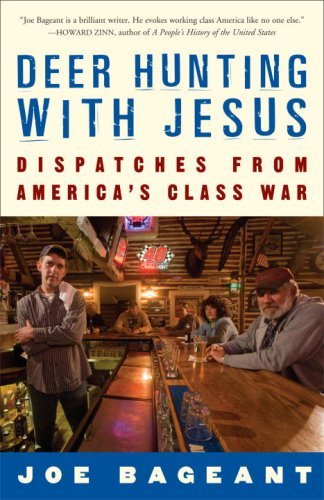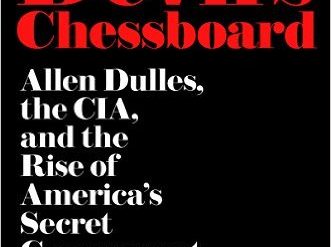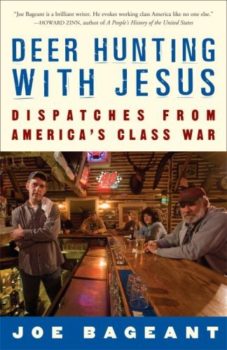
Poverty went largely unrecognized by the American public before the publication in 1962 of Michael Harrington‘s The Other America. The book captured the attention of the Kennedy Administration and probably influenced the thinking that led to Lyndon Johnson’s War on Poverty. Since that time, sociologists and policymakers alike have grappled with the stubborn persistence of the conditions that doom millions to the margins of existence but seem impervious to government intervention. Below is a list of twelve enlightening books about poverty in America published in more recent years. They’re arranged in alphabetical order by the authors’ last names. Each is linked to my review.
This post was updated on September 6, 2023.
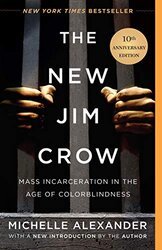
The New Jim Crow: Mass Incarceration in the Age of Colorblindness by Michelle Alexander—The New Jim Crow: reexamining mass incarceration in America
Prof. Alexander explains how the country’s criminal justice system has been warped to the point of non-recognition by a series of Presidential actions, Congressional legislation, and Supreme Court decisions–as well as the catastrophic consequences of this sequence of events for our cities, our African-American and Latino communities, and ultimately all of ourselves. Read the review.
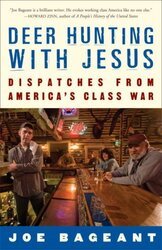
Deer Hunting with Jesus: Dispatches from America’s Class War by Joe Bageant—On the front lines of America’s class war
Bageant writes about “the business class, that legion of little Rotary Club spark plugs . . . vital to the American corporate and political machine. They are where the institutionalized rip-off of working-class people by the rich corporations finds its footing at the grassroots level . . . They are so far right they will not even eat the left wing of a chicken.” Read the review.
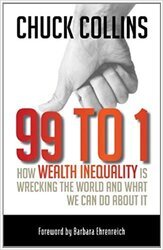
99 to 1: How Wealth Inequality Is Wrecking the World and What We Can Do About It by Chuck Collins—Wealth inequality: how the 99% can fight back
The former executive director of United for a Fair Economy lucidly spotlights the terrible price we all pay for the massive imbalance in wealth between today’s haves and have-nots. He draws a parallel between the Gilded Age of the 1890s through the 1920s and the current era, beginning in the late 1970s—both of them periods when the disparity of wealth grew to unprecedented proportions. Read the review.

Evicted: Poverty and Profit in the American City by Matthew Desmond—Does the profit motive cause homelessness?
This is one of the most enlightening books about poverty that I’ve read in recent years. Over 18 months in the field, the author followed the lives of several Milwaukee families, both black and white, before, during, and after their experience with eviction. Simultaneously, he tracked the work of two landlords, one with thirty-six badly maintained units in ghetto properties and another who owns a rundown mobile home park containing 131 deteriorating trailers. Read the review.
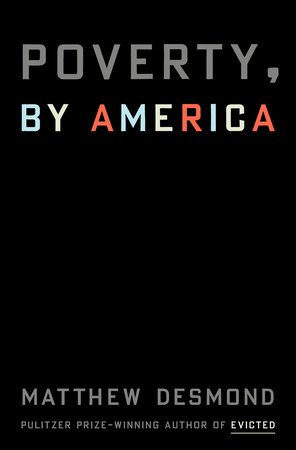
Poverty, by America by Matthew Desmond—How to end poverty in America
One of the ugliest aspects of life in America today is the appalling level of poverty—and the failure of our government to do anything meaningful about it. As sociologist Matthew Desmond makes clear in Poverty, By America, a single action by Congress and the President could easily generate the $175 billion per year needed to raise most people in the country above the poverty level. Without increasing taxes. But by simply collecting the more than $1 trillion in taxes owed but unpaid by wealthy people and large corporations. And that’s just one of the startling facts that emerge from Desmond’s eye-opening book. Read the review.
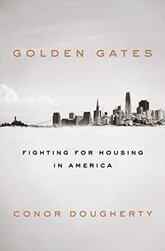
Golden Gates: Fighting for Housing in America by Conor Dougherty—Why are so many homeless in America?
Walk around almost any big American city long enough and you run the risk of tripping over some homeless person sprawled on the sidewalk. The problem has been half a century in the making, but it’s gotten far, far worse during the past decade. And nowhere is it more severe than in California’s metropolitan cities of Los Angeles and San Francisco. Here — I’m writing from Berkeley, across the Bay from San Francisco — you’re likely to hear any one of a number of explanations for how things have gotten so bad. But if you want to know how to sort through the myths and misconceptions about housing and homelessness in America, a great place to start is Conor Dougherty’s outstanding new book, Golden Gates. Read the review.
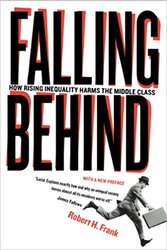
Falling Behind: How Rising Inequality Harms the Middle Class, by Robert H. Frank—Robert Frank examines income inequality and the tragedy of the commons
Frank goes far beyond the superficial coverage of income inequality in much of the media, which is largely limited to dramatizing just how far and fast the gap has grown between the haves and have-nots. He explains how income inequality forces people of lower or middle income to spend more than they can afford on housing, clothing, and sometimes even food—and how the policies that foster inequality saddle society with inadequate public transportation, polluted air and water, crumbling infrastructure, and other frequently neglected problems. Read the review.
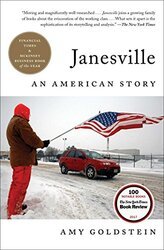
Janesville: An American Story by Amy Goldstein—Janesville book review: The human cost of the Great Recession
Goldstein frames her insightful new book as An American Story. By following the fortunes of a half-dozen families in Janesville, Wisconsin, Goldstein dramatizes the impact of the Great Recession of 2008 in the years following the closure of a large Chevrolet factory. She eloquently shows that the pain it inflicted on the people of Janesville has lasted to this day. This is, indeed, an American story. Read the review.
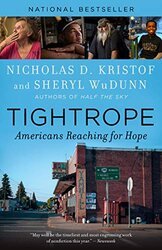
Tightrope: Americans Reaching for Hope by Nicholas D. Kristof and Sheryl WuDunn—A hopeful message about poverty in America by Nick Kristof and Sheryl WuDunn
In Tightrope, Kristof and WuDunn travel the back roads of America, studying private and local programs, often undertaken by philanthropists, to address the problems they observe. And they find a great deal of hope in what they find. However, the roots of those problems lie in the wrong turn that the federal government has taken over the past half-century. Instead, they advocate a host of progressive reforms. Read the review.
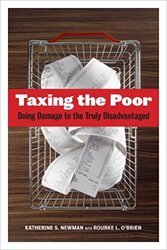
Taxing the Poor: Doing Damage to the Truly Disadvantaged by Katherine S. Newman and Rourke L. O’Brien—Poverty in America: why the poor get poorer
Students of poverty in America have searched for its roots in many areas, including racism, culture, genetics, personal responsibility, and social policy. Taxes, by contrast, have received little attention. Newman and O’Brien respond to this oversight with an illuminating survey of how tax policy in the South has contributed in major ways to the poverty endemic in the region on both sides of the color line. Read the review.
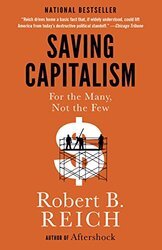
Saving Capitalism: For the Many, Not the Few by Robert B. Reich—Robert Reich explains how to make capitalism work for the middle class
The former U.S. Secretary of Labor takes on the economic issues of the day from a perspective that rarely comes to light in public discourse: he rejects the widespread assumption that a “free market” exists independent of government. “A market—any market—requires that government make and enforce the rules of the game,” Reich writes. Read the review.
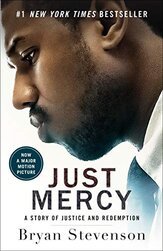
Just Mercy: A Story of Justice and Redemption by Bryan Stevenson—A searing look at America’s broken criminal justice system
Stevenson’s perspective on law enforcement is clear: “we have to reform a system of criminal justice that continues to treat people better if they are rich and guilty than if they are poor and innocent.” His book focuses on an African-American businessman in Alabama who was wrongly imprisoned on death row for six years. Read the review.
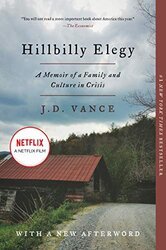
Hillbilly Elegy: A Memoir of a Family and Culture in Crisis by J. D. Vance—Hillbilly? Redneck? White trash?
This spellbinding book is the haunting story of one man who escaped the bounds of his class and now sometimes finds himself adrift. The book also paints a vivid picture of America’s hardening class divisions. It’s a riveting illustration of widening economic inequality and, like other books about poverty in this list, brings reality home with great power. Read the review.
For related reading
Since wealth and income inequality, and thus poverty in America, can be directly linked to political decisions, you might also check out Top 10 nonfiction books about politics. And it’s worth also reviewing Narrowing global inequities: a reading list and The top 10 books on the economics of poverty.
And you can always find my most popular reviews, and the most recent ones, on the Home Page.

